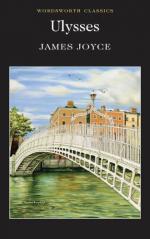|
This section contains 5,600 words (approx. 19 pages at 300 words per page) |

|
SOURCE: Alter, Robert. “James Joyce's Comic Messiah.” American Scholar 66, no. 3 (summer 1997): 452-61.
In the following essay, Alter perceives the character of Leopold Bloom in Ulysses as a version of the Greek epic hero.
The reasons that drew Joyce to cast his modern Everyman in the mold of the classical Ulysses have been broadly evident to readers since the first publication of the novel. Of all the epic heroes of antiquity, Ulysses is the one who most fully engages the alluring multiplicity of human experience (“many sided” is one of his Homeric epithets), moving from seductress to sorceress to monster to welcoming princess, flung from proud commander to naked shipwreck survivor, then springing from disguised beggar to triumphant king. The exigencies of the quotidian, piquantly entrammeled with the fabulous, are more palpable in his story than in any of the other classical epics, and domesticity is the inner sanctum...
|
This section contains 5,600 words (approx. 19 pages at 300 words per page) |

|


